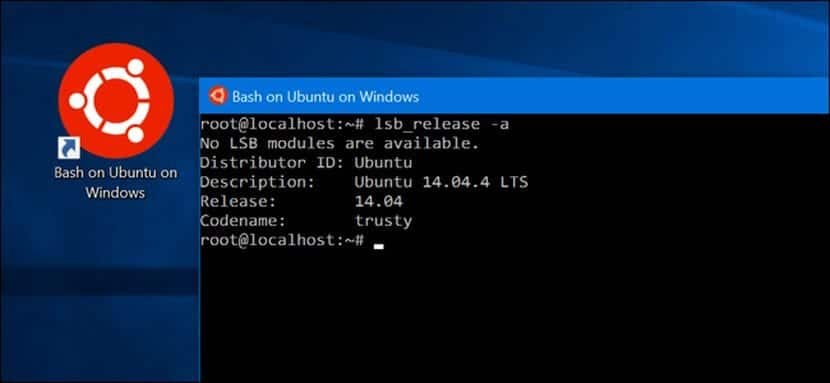
The integration process of Ubuntu Bash on Windows 10 it has encountered a new incident that may jeopardize its viability within this system. As you know and we already mentioned days ago, Ubuntu Bash has become one of the more relevant features inside the new operating system from the folks at Redmond.
The idea proposed with Ubuntu Bash is very attractive: a Linux terminal within the Windows system with almost full functionality that also allows the execution of simple programs. This opens up a world of possibilities and GNU software for Windows environments and the possibility of managing a multitude of systems from the same environment without the need for third-party tools.
This attractive idea, the result of the alliance between Microsoft and Canonical during the failed Astoria Project, materialized in an open-source project whose security has been compromised following the last Black Hat convention held in Las Vegas, where Alex Ionescu, chief architect at Crowdstrike, has demonstrated the security flaws it presents.
These failures, still pending correction by the Redmond giant, opens numerous vulnerable avenues for Windows applications susceptible to be able to be injected with malicious code, being able to modify the memory and even go back to the applications of the Linux environment. This process would be carried out using the famous system API calls Windows, which together with the direct access that exists to the file system on the computer, would actually do difficult to mitigate a possible attack to be executed using these mechanisms.
Microsoft seems to have gotten down to work and is beginning to work on the errors that have been reported, but a distinction must be made between the kernel used by Ubuntu Bash, which is self-made for Windows 10, and the authentic one that does use the system. Canonical, then both do not share the same update base.
On the other hand, there is another nuance associated with the application of Windows AppLocker, which is not associated with the Ubuntu Bash environment and therefore no application whitelist can be created for it. This is especially detrimental for productive environments where AppLocker cannot function as a first barrier to potential threats Of applications. Antivirus programs are alien to this feature and the system's own firewall is insufficient to ensure sufficient protection for the computer.
Finally, in the words of Ionescu himself, it seems more than likely that these vulnerabilities are not exploited by any hacker Given the requirements that must be met for Ubuntu Bash to be an installer on the computer: the activation of the developer mode and the installation of the additional feature.
Source: VerySecurity.net
I have a problem when executing a script in the ubuntu bash in Windows 10, it happens that I do not know why the last values assigned to some vectors are lost, I assume that it may be a memory problem and when executing I have the error (standard_in) 1 : syntax error